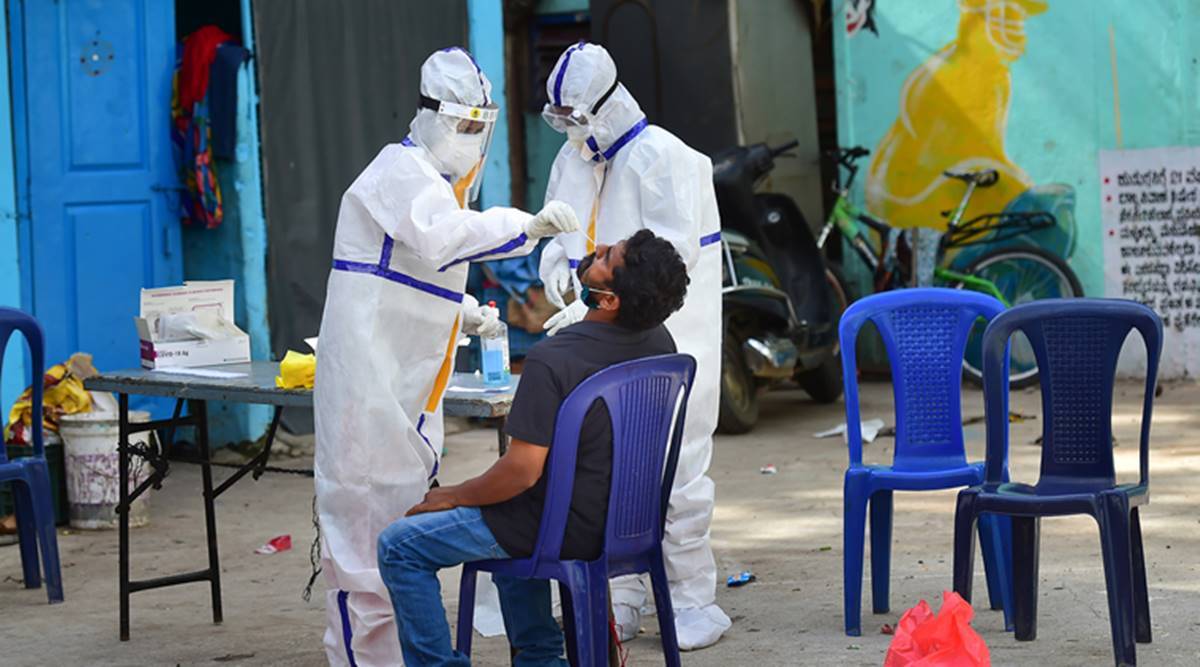
South Indian variant of COVID 15 times more lethal, highly infectious: Scientists
The N440K was discovered by scientists at the Centre for Cellular and Molecular Biology; the new mutant is said to be even more potent than the earlier Indian variants B1.617 and B1.618

Even as India struggles with the second wave of COVID-19, a new variant of SARS-CoV-2, called N440K, is being spotted in various parts of the country. Reports say the variant is around 15 times more lethal than its earlier avatars. Till date, India has seen over 2 crore COVID cases, and about 2.2 lakh deaths.
The N440K was discovered by scientists at the Centre for Cellular and Molecular Biology (CCMB). The new mutant is said to be even more potent than the earlier Indian variants B1.617 and B1.618.
Now into its second year, the pandemic has seen several variants mushrooming worldwide, even as a global vaccination drive seeks to contain the infection.
More Potent
CCMB scientists say the N440K variant may produce 10 times more infectious viral titres than the common A2a strain. It may also produce over 1,000 times higher titres than a less prevalent A3i strain prototype in Caco2 cells.
Related news: A 3rd COVID wave likely in India if virus evolves rapidly: AIIMS chief
The N440K variant is suspected to be the reason for the sharp spike in new infections in Andhra Pradesh in recent weeks. It is also said to be prevalent in parts of Maharashtra, Chhattisgarh and Karnataka.
However, CCMB advisor Rakesh Mishra told The New Indian Express that the strain, which was found in 20-30 per cent of samples in Andhra Pradesh, Karnataka, Maharashtra, Tamil Nadu and Telangana, will fade away in the coming weeks.
Call for Caution
Yet people are advised to strictly adhere to COVID appropriate behaviour like wearing masks, maintaining physical distance, personal hygiene and proper sanitation, as the B.1.617 variant, known as the ‘Double Mutant’ or ‘Indian Variant,’ is steadily becoming a dominant ‘variant’ of coronavirus, Mishra said.
In mid-2020, a variant with D614G substitution had become the predominant strain. Later, new variants were identified globally, such as the B.1.1.7 lineage (UK), P.1 lineage (Brazil), and B.1.351 (South Africa).
Accurate and timely detection of new variants showing greater infectivity or worse clinical symptoms, including “immune escape”, will be extremely important to pre-empt disastrous consequences, said a CCMB study. While vaccines are helpful, the “social vaccine” of masks, hand-hygiene and physical distance is the most effective weapon against the pandemic, it added.
The best way to control the potential damage is to exercise extensive genome surveillance and take measures to prevent the spread of new variants as and when detected, it noted.


